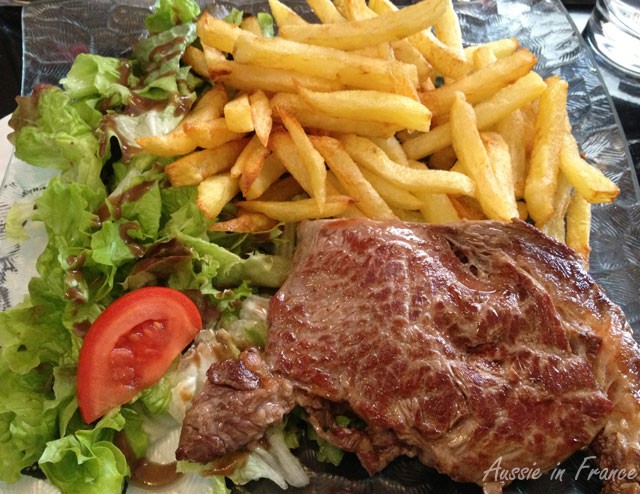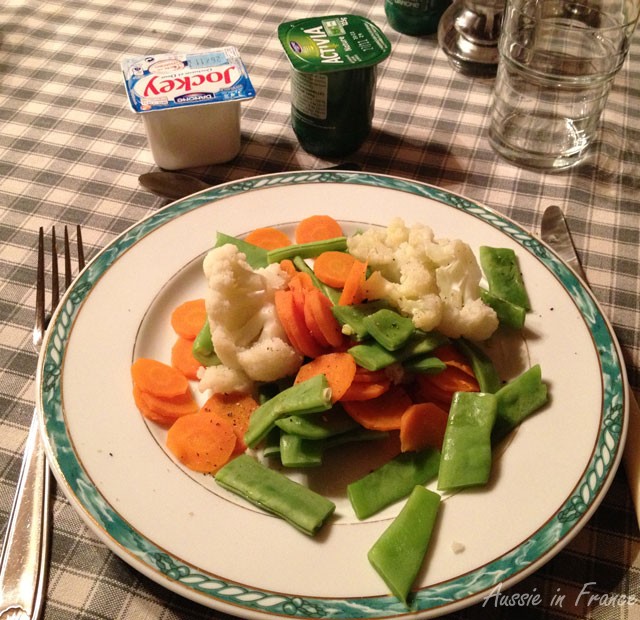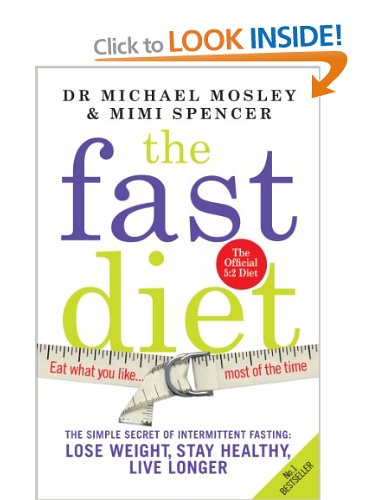I thought you might like to know how we’re getting on with our intermittent fasting (or 5:2 fast diet) that we started in June this year just before we went on our cycling trip along the Danube.
Well, it’s going wonderfully! I’ve lost the 5 kilos I put back on after my initial diet three years ago when I lost 20 kilos, despite the fact that I am now eating a lot of foods I had thought I’d have to give up forever.
I actually look forward to our fast days, when I have 500 calories and Jean Michel has 600, and which we plan according to what’s going on that week but which are usually 3 or 4 days apart. Mondays and Thursdays or Fridays are typical choices, but the beauty of the 5:2 fast is that there are no fixed days. We continue to always eat the same thing on those days, as it suits us that way.
The amazing thing is that I am not hungry on fast days. I even forget it’s a fast day until lunch and dinner come around (we don’t have breakfast).
The day after a fast day, though, we’re usually pretty hungry. I’ve found that having a good breakfast is the most effective solution to feeling ravenous mid-morning. I’d really rather not get into the habit of snacking again.
After my initial diet, I had eliminated foods such as fresh ravioli, quiche and French fries. We had reduced our wine intake to about once or twice a week which was rather sad because we are both wine buffs. If we went out to dinner, I tried to be reasonable and only order low-calorie foods. I felt guilty if I indulged AND I STILL PUT THOSE FIVE KILOS BACK ON.

Now I can order French fries, foie gras and fish with beurre nantais and enjoy them without compunction! If we do have a heavy lunch or dinner, we just skip the next meal. I can have those very moorish Chambord biscuits with afternoon tea and a glass of wine with my meal if I feel like it.
We do, however, continue to have well-balanced meals for health purposes. If we have ravioli, I serve it with a tossed salad, for example, followed by fresh fruit. We still more or less respect the “plate-divided-into-four” principle though I’m more likely to spread it out over two meals, with more protein at one and less carbs and vice versa.
Jean Michel was convinced that he would not be able to continue fasting when doing a lot of physical work such as heavy gardening and renovation. I didn’t insist even though I couldn’t see the problem. When we were cycling 50 to 60 kilometers a day along the Danube last summer, we had as much energy on fast days as we did on feast days. But he said it was not the same.
However, as it turns out, he has no trouble fasting when we’re in Blois, despite a much more active life style. He just has make sure he drinks a lot of water to prevent hydration.
The 5:2 fast diet doesn’t suit everyone of course. We have French friends who prefer to reduce the period of nutrition to 8 hours, skipping breakfast, having lunch around 1 pm and dinner before 9 pm, thus leaving a period of 16 hours between the last and first meal each day. Their reference is Le Fasting by JB Rives.
I’d be interested to hear other people’s experience.
You might be interested in my other posts on dieting:
The Natural Skinnies and Us How I lost 20 kilos after 50 – for good: Part 1 How I lost 20 kilos after 50 – for good: Part 2 How I lost 20 kilos after 50 – for good: Part 3 How I lost 20 kilos after 50 – for good: Part 4 How I lost 20 kilos after 50 – for good: Part 5 How I lost 20 kilos after 50 – for good: Part 6 How I lost 20 kilos after 50 – for good – well almost: Part 7 Where do all those extra kilos come from? Appetite suppressants anyone? Natural solutions Intermittent fasting – for better health and less fat The 5:2 fast diet – fast and feast and still love weight The 5:2 fast diet on holidays The 5:2 fast diet (video)






